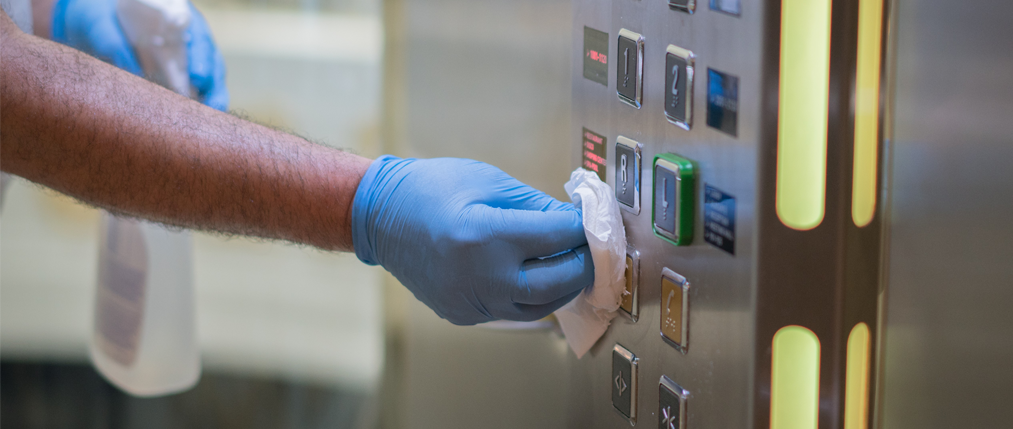An industry-focused on food and beverage, travel and tourism, lodging, and recreation, hospitality is an extremely competitive sector that’s undergoing some major changes right now. There’s ample opportunity for companies that understand and fulfill their customer segments’ wants and needs, but there are also numerous barriers to entry and ongoing challenges to break through on the path to success.
To overcome these obstacles, hospitality operators need good information about their competitors, their industry, and broader consumer trends.
Here are seven key trends that hospitality companies are watching right now.
Enhanced focus on safety and hygiene
The global pandemic brought new awareness to the levels of safety and hygiene needed to keep both employees and customers safe. The hospitality industry has felt the impacts of these new requirements and has pivoted to creating cleaner, healthier, socially-distanced spaces where customers may safely enjoy their food and beverage, travel, hotel stays, and/or recreational activities. This trend will likely continue in the post-COVID world thanks to the heightened awareness of pandemics and other disruptions that may not have previously been on operators’ radar screens.
More ‘contactless’ experiences
For years now, the hospitality industry has been implementing contactless payments and finding other ways to remove the “friction” in the customer service experience. This momentum picked up significantly in 2020 when the global pandemic made close personal contact a health concern. Using contactless payment options, for example, restaurants and hotels may avoid cash-handling and give customers the physical space they need to feel safe while doing business with them.
Creating sustainable operations
Today’s customers want to know that the companies they’re patronizing are treating their employees, global community, and the environment well. Hospitality organizations that aren’t paying attention to sustainability may lose customers and wind up with damaged brands as a result. To avoid these issues, hotels encourage patrons to reuse their bedding and towels (where they used to wash them all daily); restaurants are donating perishable goods to food banks (rather than letting them to go waste); and airports are installing LED light bulbs and smart thermostats (to save money and energy). As more companies move in this direction, the path to sustainability is limited only by their own imaginations.
Catering to Millennial and Generation Y customers
As a combined consumer group, millennials and Gen Y have different expectations than their Baby Boomer and Generation X parents/grandparents do. Many of them are “digital natives,” for example, who like mobile technology (e.g., to make restaurant reservations, check in when they arrive, and even unlock their hotel rooms), healthier meal choices, and family-friendly environments where they may enjoy experiences with their kids and pets. And while they enjoy personal interactions, younger consumers are also interested in frictionless experiences when it comes to ordering, making reservations, paying, and transacting. To accommodate these and other shifts, operators may develop streamlined check-in processes (i.e., no more waiting in a lobby line for 30 minutes for a face-to-face interaction), more diverse menu options, and chatbots that may provide instant customer service support online.
Wowing customers with great at-home experiences
The days when service didn’t kick into gear until a customer was on-premises have been left behind in favor of creating experiences that extend beyond the boundaries of the restaurant, bar, hotel, or another establishment. In adapting to both COVID-19 and customers’ changing expectations, companies are effectively bringing their products and services right into their customers’ homes. This may be as simple as offering mobile ordering and contactless deliveries, or as elaborate as providing fully-catered meals for holidays and other events. By wowing their customers with great at-home experiences, hospitality operators are showing that they may break out of the confines of traditional business models and adapt to the changing times.
Smarter, more ‘connected’ hotel rooms
Connected technologies like the Internet of Things (IoT), sensors, voice, and others have been making their way into the business world over the last few years. Expect to see more of this surfacing in the hospitality world, where smart hotels allow customers to control their thermostats from their own phones (a huge upgrade over traditional plastic, wall-mounted thermostats), turn their TVs on and off using voice, or walk into a room where the lighting is perfectly suited to the time of day and available natural lighting. As technology continues to advance, hospitality operators may weave these and other connected options into their unique selling propositions.
Robots and AI are coming
The day when a robot greets you from behind a restaurant podium or front desk could still be a few years away, but that hasn’t stopped companies from investing in automation that helps them work better, smarter, and faster. For example, robots may perform certain housekeeping duties or handle various aspects of food service while minimizing close contact among people. Artificial intelligence (AI) is also playing a larger role in the industry, where it helps reduce human errors, identify patterns across customers, and even offer personalized recommendations and upsells/cross-sells. Hospitality providers may leverage these capabilities in order to operate more efficiently and create a better, overall customer experience.
Staying Ahead of the Game
As an industry that’s always looking for new ways to improve, work smarter and wow its customers, the hospitality sector is both competitive and rewarding. By staying on top of the trends outlined in this article, and by making the moves that are right for your own organization, you’ll be able to stay out in front of the competition and keep your customers coming back for a great experience.
This article is intended for general informational purposes only and does not constitute legal advice or an opinion on any issue. It should not be regarded as comprehensive or a substitute for professional advice.



